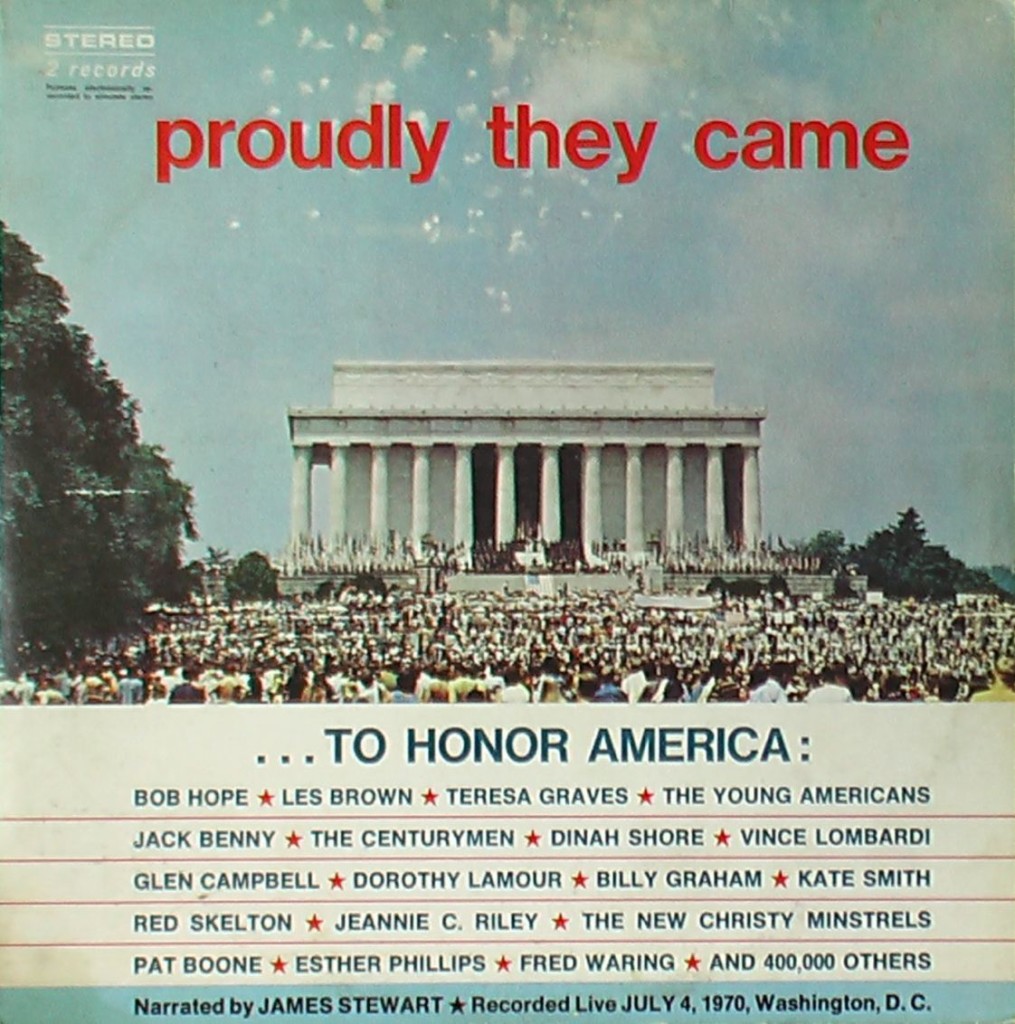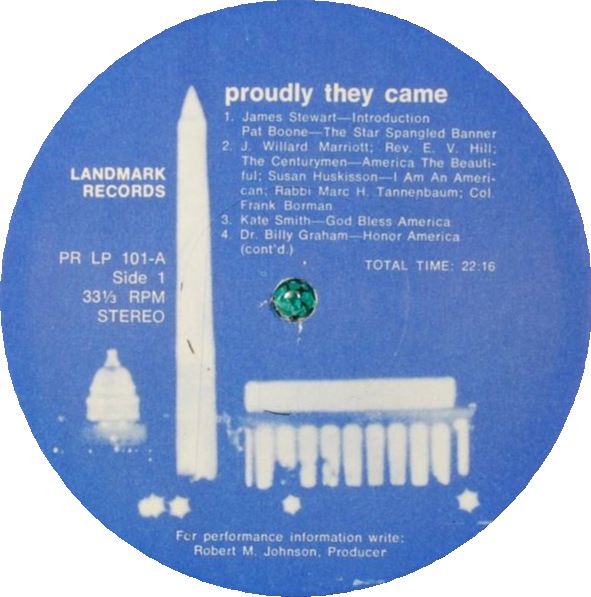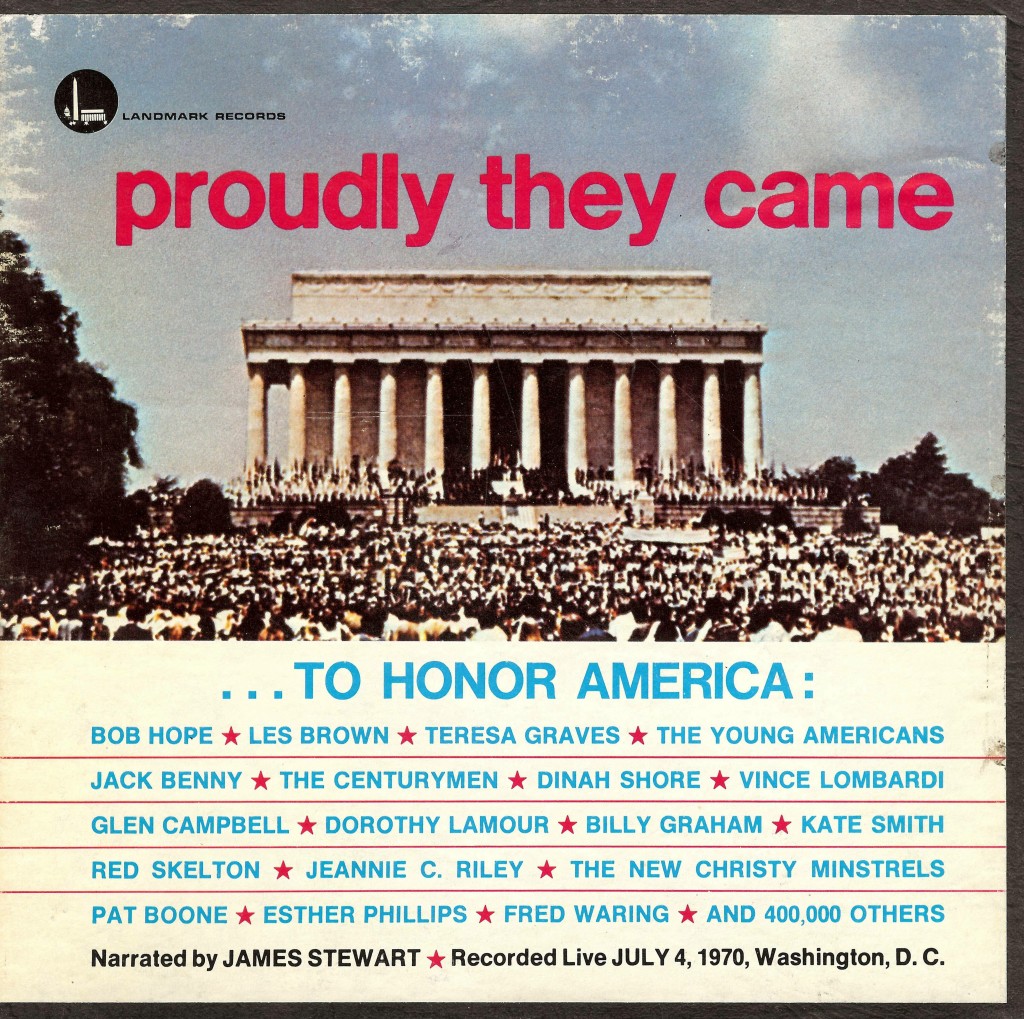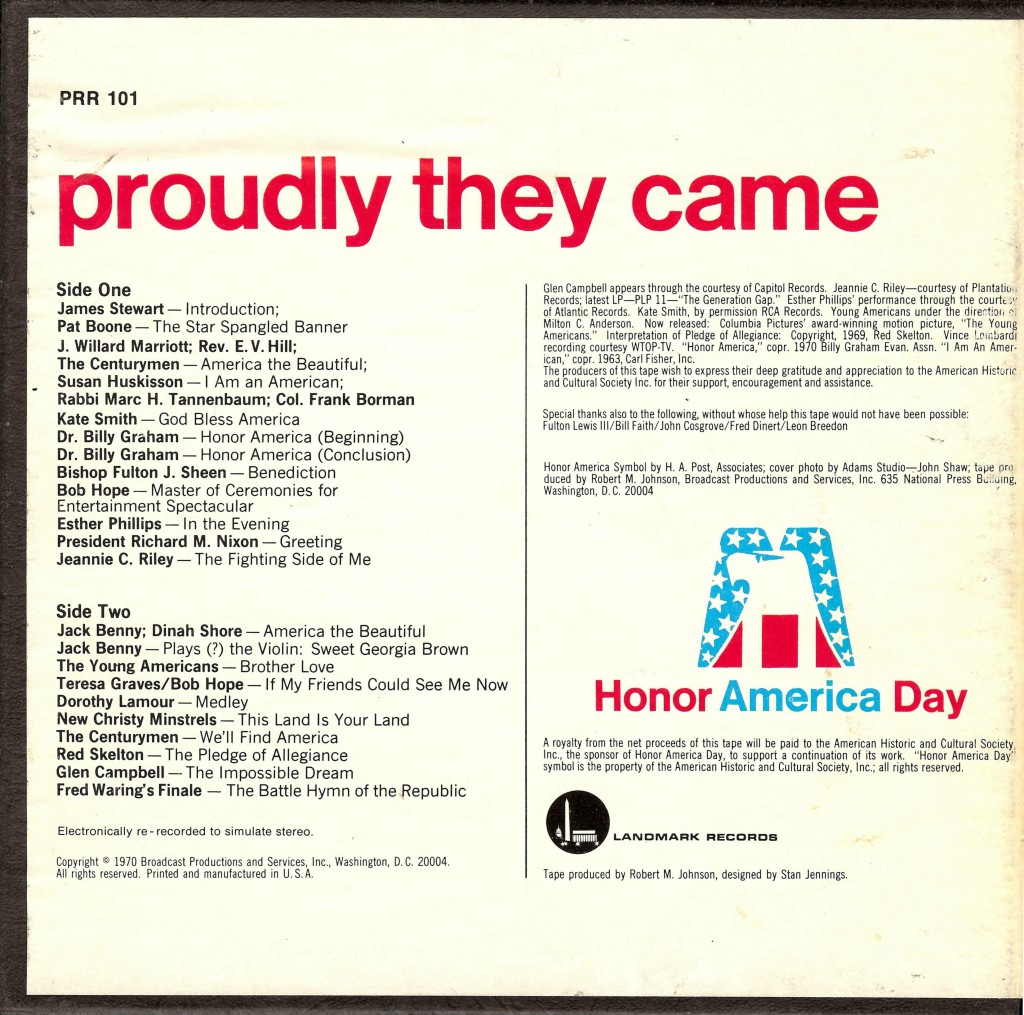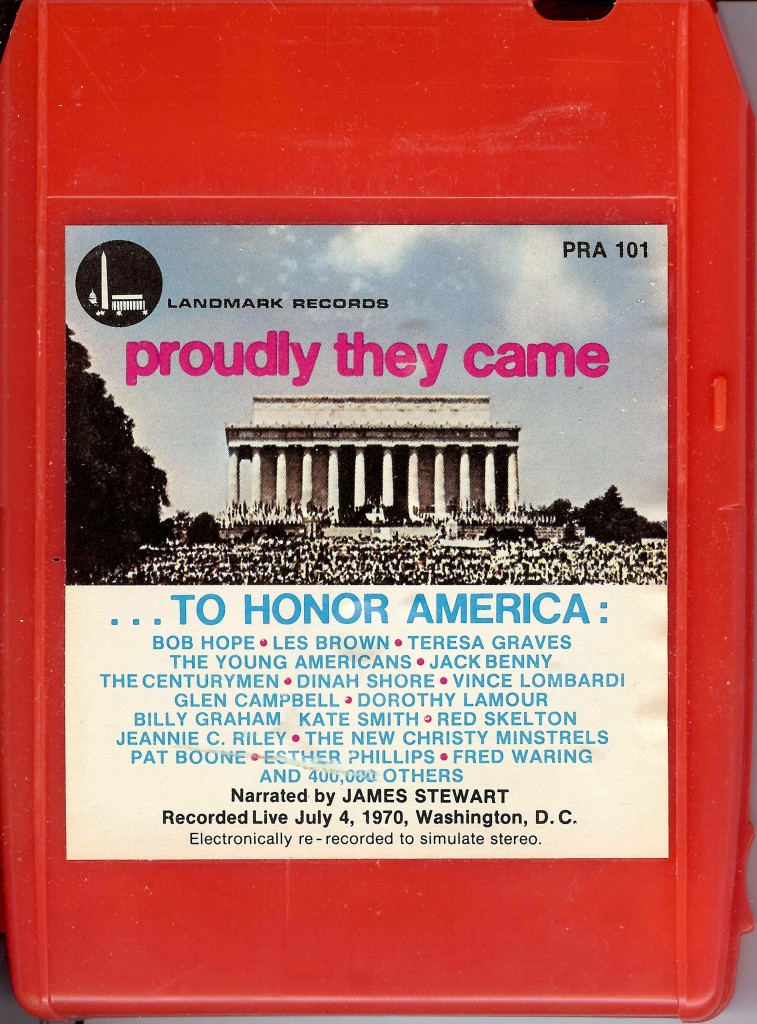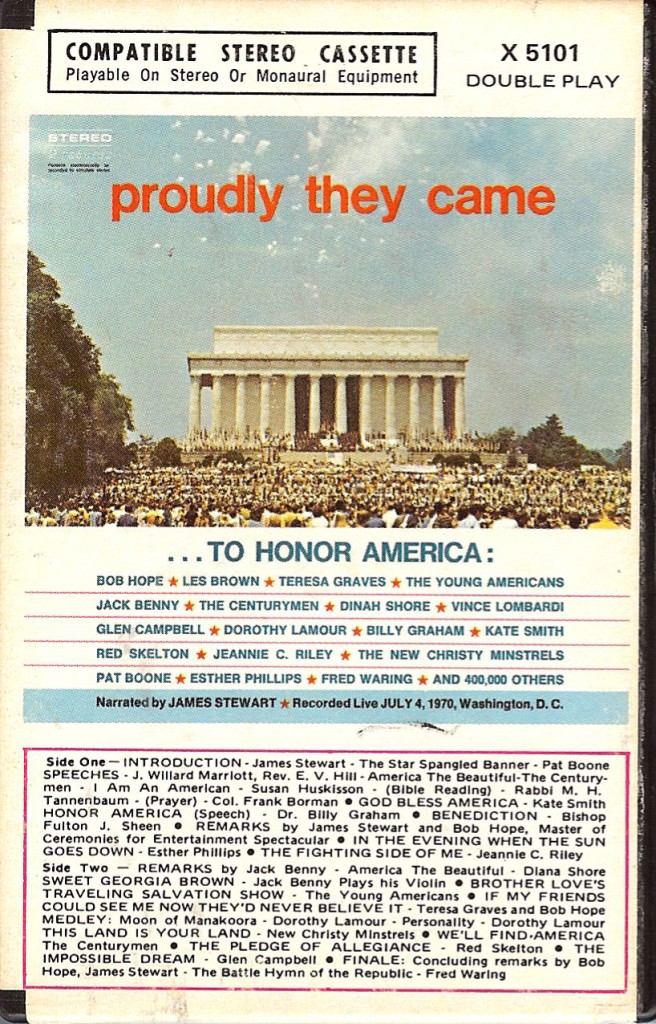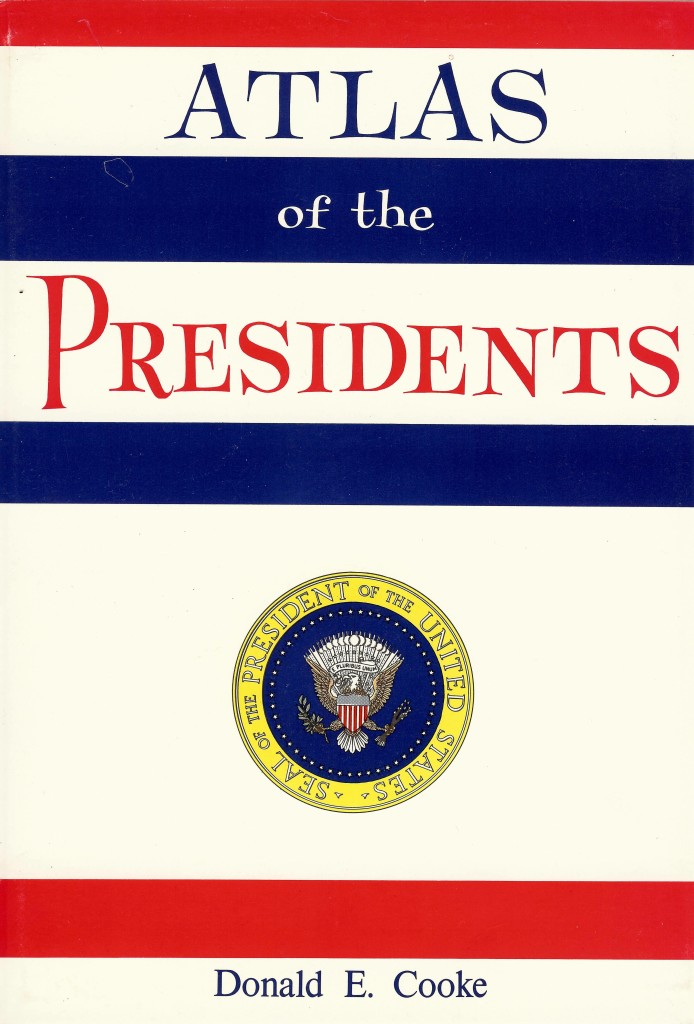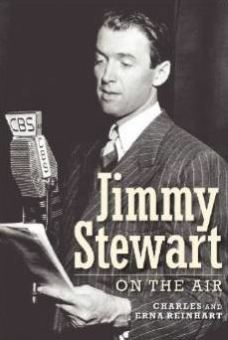This 1970 recording was released in at least four different formats by Landmark Records:
DQBO 93503 (2-LP)
PRR 101 (Reel-to-reel tape)
PRA 101 (8-track tape)
X 5101 (Cassette)
The special 2-record set has highlights of “Honor America Day,” held July 4, 1970, in Washington, DC .Despite the fact that Stewart is listed as the narrator, he only provides the introduction at the beginning of side one and is not heard again. A royalty from the net proceeds on the album were paid to the American Historic and Cultural Society, Inc., the sponsor of Honor America Day. The album was produced by Robert M. Johnson and designed by Stan Jennings. The photos used inside the gatefold jacket were by Frank Johnson of the Washington Post. The album’s liner notes were written by author Robert J. Serling. Also supplying music was Les Brown and His Band. Special thanks were given to Fulton Lewis III, Bill Faith, John Cosgrove, Fred Dinert and Leon Breedon. The album was also issued with a book – Atlas of the Presidents, by Donald E. Cooke – seen below. The book features useful information on the first 37 presidents of the U.S. The book came with a poster showing all Presidents through Richard Nixon, an explanation of the electoral college system, a map showing the number of electoral college votes for each state, and seven small maps showing how each state voted (Democrat-Republican) since 1932.
Here is Stewart’s introduction, along with a transcript of what he said:
You are about to relive a very important day in the life of the United States, July 4, 1970. The place, Washington, DC, the nation’s Capitol. Independence Day has always possessed a kind of imagery for most of us of warm nostalgia and flags and fireworks, parades and bunting, oratory and band music. It’s an atmosphere of blending picnics with patriotism, and yet one in which we often manage to forget just what started the whole thing 194 years ago and the real significance of July 4th. A handful of Americans didn’t forget. There was a minister, the Reverend Billy Graham; a magazine editor, Hobart Lewis of Reader’s Digest; a hotel executive, J. Willard Marriott; an entertainer, Bob Hope. Their goal was simple, to have a national birthday party, one which might help all of us remember what’s right with America without forgetting what’s wrong. They called their effort “Honor America Day.” The task was not as simple as the goal. It was played against a backdrop of cynicism, tension, delusion of an unpopular and undeclared war, of incredible plenty living next door to incongruous poverty, of a technology that simultaneously puts man on the moon and pollutes the Earth. “Honor America Day” was denounced in advance and with equal fervor by extremists on both the far right and the far left. There was not only apathy, but a feeling by a few that a day honoring the nation was somehow the height of political partisanship, and this despite the support and praise of two former presidents, Harry Truman and Lyndon Johnson, along with Richard Nixon. There were many moments of encouragement though which served to smother the voices of skepticism. Day by day the project received the support of more and more Americans, leaders in a wide variety of professions who were aware of their nation’s ills and regarded a day of honor as a possible cure. One of the sponsors happened to be a prominent figure in sports. He also happened to be a prominent leader in the fight for civil rights. He was the kind of man who once took his entire team through the back door of a southern restaurant because that was the only way the Negroes on the squad could be admitted. He not only preached civil rights, but he lived them. And he had this explanation for agreeing to serve as a sponsor for “Honor America Day….” These words were spoken by Vincent Thomas Lombardi. Problems cannot be solved, he said, by waving the American flag. But neither can they be solved by tearing down the American flag. In simple eloquence, that sums up the spirit of “Honor America Day” and of what you’re about to hear. First, the voice of Pat Boone.
Also appearing on the album were: J. Willard Marriott, Rev. E.V. Hill, The Centurymen, Susan Huskisson, Rabbi Marc H. Tannenbaum, Colonel Frank Borman, Kate Smith, Dr. Billy Graham, Bishop Fulton J. Sheen, Bob Hope, Esther Phillips, President Richard M. Nixon, Jeannine C. Riley, Jack Benny, Dinah Shore, The Young Americans, Teresa Graves, Dorothy Lamour, The New Christy Minstrels, Red Skelton, Glen Campbell and Fred Waring.
